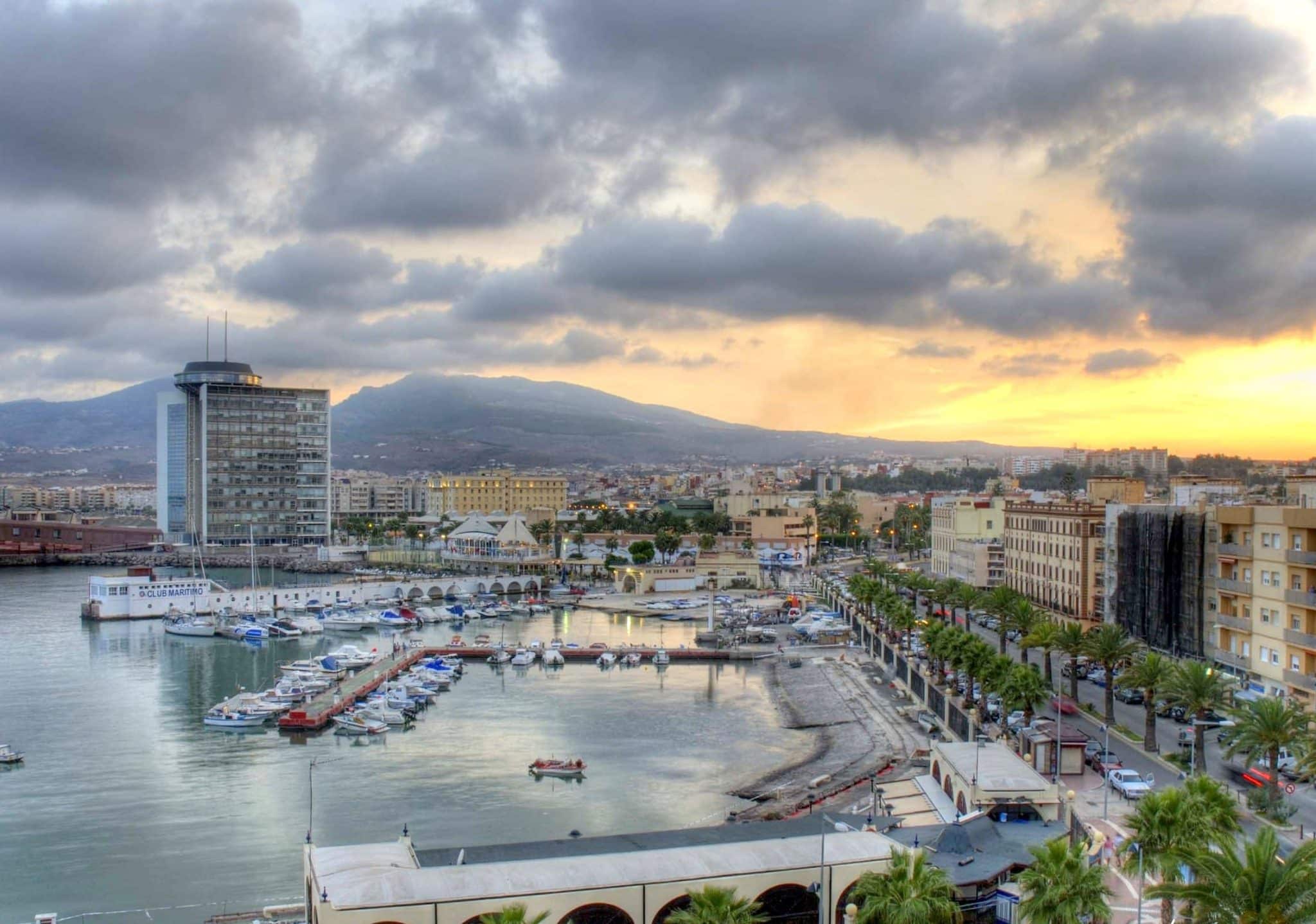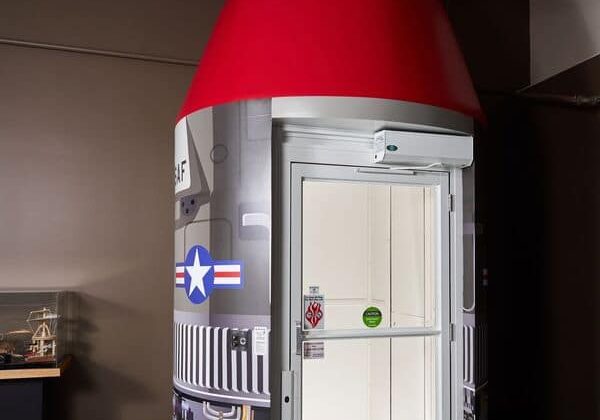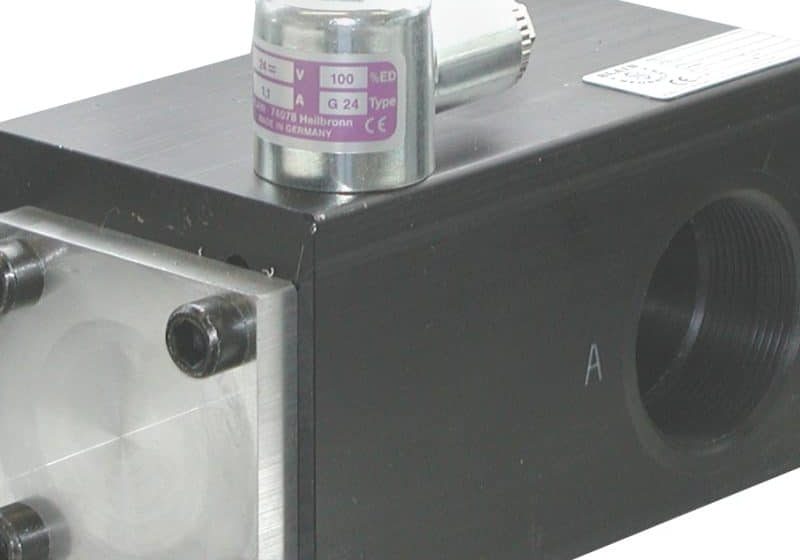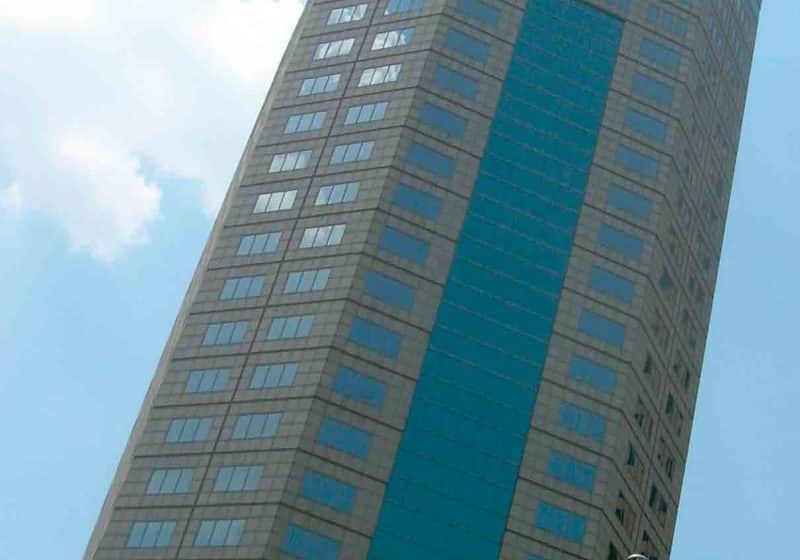Port of Melilla Melilla, Spain
Jan 1, 2018

Efficient, innovative solution helps ease passenger traffic flow at bustling facility.
submitted by Gabriela Pieschacón, thyssenkrupp Elevator
Melilla is a Spanish autonomous city in North Africa on the shores of the Mediterranean Sea at the eastern end of the Strait of Gibraltar that enjoys a privileged geostrategic position, allowing it to serve the markets of the western Mediterranean, North and Central Africa and Southern Europe. The Port of Melilla is a key port for the country, both for its location and its ability to guarantee supplies to the autonomous city. With traffic in 2014 of more than 1 million mT of goods and 772,134 passengers, the port had growth of 47% in general merchandise and 122% in passenger traffic, making it among the fastest growing in the world in the past 10 years.
Given the lack of alternative land connections in the city, the Port of Melilla is the main entry and exit point for cargo and passengers. In light of that, the port is implementing an investment plan aimed at making it more competitive and consolidating its traffic, since the forecast for the coming years is continued growth in both container and passenger traffic.
In 2013, the port embarked on a project to build a 318-m-long pedestrian walkway to unite the maritime station of Melilla with the jetty pier. Within this project, the port provided for installing moving walks to facilitate the transfer of passengers between the station and berths to the ships. In 2016, the port hired thyssenkrupp Elevadores to supply and install three moving walks. The port realized thyssenkrupp’s iwalk came with significant advantages to installation.
Project Details
thyssenkrupp Elevadores’ contract consisted of supplying, installing and commissioning the three iwalks, each 44 m long, two horizontal and three adapted to the profile of the pedestrian walkway with a slope of 2.52˚. Given the location of the walkways over the sea, the technical specifications of the equipment were very demanding to ensure proper operation in the highly corrosive, saline environment. They included:
- Metallic components in American Iron and Steel Institute 316 anti-corrosive stainless steel
- Automatic-start, energy-saving system with ammeter to monitor consumption
- LED lighting under the handrails
Programmable logic controller with remote monitoring thyssenkrupp’s iwalk system provided multiple advantages over traditional horizontal moving walks, including:
- Greater pallet width of 1,100 mm versus 1,000 mm for a traditional moving walk
- Smaller recess/thinner slab than a horizontal moving walk, resulting in civil works cost savings
- Greater clearance that achieved the minimum free height of 2,300 mm required by EN 115
- Comb plates only 7 mm tall, a reduction of 80% compared with traditional designs
- A balustrade of 12 mm, instead of the typical 10 mm
- Increased user comfort, flexibility and a more sustainable design
Assembly Description
Thanks to iwalk’s modular design, equipment assembly was simplified, allowing the project to stay on schedule. Equipment was supplied in nine modules, each with a bundle-type assembly that allowed modules to be transported to the jobsite in just six packages. All material was unloaded inside the port in stockpiles as previously organized with the Port of Melilla.
Because of all the cargo in the port, the iwalk parts were placed in the walkway module-by-module using a mobile crane, after having been brought to their respective recesses on electric pallet trucks. Thanks to the design and small recesses needed for the equipment, modules were mounted directly onto the existing slab, which entailed very little civil work. The client then raised the port’s ground level to make it flush with the iwalk.
The flexibility and short delivery times of thyssenkrupp Norte, as well as the experience and knowledge of the project teams, made this a great success that fulfilled customer expectations.
Get more of Elevator World. Sign up for our free e-newsletter.









